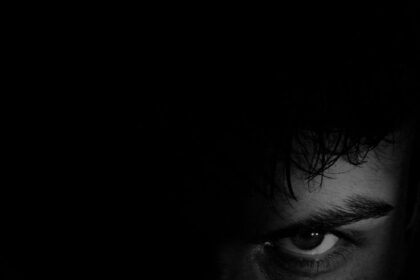On the night of 7 May, India launched missile strikes at nine different locations in Pakistan under the codename Operation Sindoor. What followed was a four-day military conflict between the two countries. These four days were pivotal for Pakistan—her safety, her future, and her people. Each day, Instagram was flooded with stories of fear and personal views, with new posts pouring in about how India is Pakistan’s undisputed bully, how the army is the actual gatekeeper of this country, and reels made on patriotism and the condemnation of India for its Hindutva ideology. Amidst all this, however, there was a certain group of people—one profession in particular—that was breathing under the severe scrutiny of the entire country during these four days: our actors.
We saw actors like Mahira Khan, Mawra Hocane, Ameer Gilani, Muneeb Butt, Fahad Mustafa, and Osman Khalid Butt being explicit, raw, and vulnerable in their anger, hurt, and disappointment over India. Then we saw a more contained yet clear reaction from Hania Amir; Ayeza Khan encompassed humanity in her story, and Fawad Khan addressed the victims of India’s late-night operation. I do not usually keep up with celebrity culture, but now with every refresh, my social media feed brings yet another post on how our actors have ‘ashamed us’—in particular, Fawad Khan.
As a reminder, Fawad Khan is one of the top talents this country has ever produced in acting, with stellar dramas like Humsafar, Zindagi Gulzar Hai, and Dastaan; a masterpiece of a telefilm like Behadd; and blockbuster films like Khuda Kay Liye and The Legend of Maula Jatt under his belt. His obvious talent and on-screen charm were also recognised in Bollywood, where he starred in Khoobsurat and Kapoor & Sons. Hollywood cast him in their popular Marvel franchise’s Ms. Marvel. These are highlights from Fawad Khan’s over two-decade acting career.
Fawad Khan made his Bollywood debut in 2014’s Khoobsurat alongside Sonam Kapoor. For this role, he received India’s prestigious Filmfare Award for Best Male Debut. Any professional would want to broaden their horizons and explore new environments for the growth of their career; Fawad Khan happened to choose India and its vast acting industry. Whether we approve of this or not, it’s his career, his earnings, and his decisions.
One of the many hateful and bullying comments I came across on social media was that Fawad Khan didn’t condemn India’s cowardly attack on Pakistan—and whatever he did say was vague and neutral, aimed at protecting his future Bollywood career.
Personally, those four days overstimulated me. As someone who is very sensitive to energies and prone to overthinking, I decided to take a break from social media and only seek updates from a reliable source once or twice a day. I am a doctor by profession and live a private life, so no one questioned my absence or took my silence on social media as a lack of patriotism.
I do believe, however, that anyone who decides to speak up should speak with clarity, with purpose—speak so their voice is loud and unapologetic. Fawad Khan clearly didn’t do that. But can we question him? Did he ever ask us to put him on a pedestal of Pakistani nationalism? Did we expect more than just acting from an actor?
I love Fawad Khan—many of us do—but let’s be real: we love the actor that he is and the work he has given us. That’s it. This is his job, and he never pledged to be anything more than that or to be anyone beyond his job title. He never presented himself as a modern-day influencer, daily vlogger, or relatable meme creator. He never asked his audience to follow him on Instagram or listen to a podcast where he talked about mental health struggles. He never claimed to represent an entire nation or to be an authority on uninhibited political views. His job was to act—and he delivered.
Another allegation that came forward was that Fawad Khan is all chirpy and “boy-next-door” in India, while his persona in his own country is that of an introvert—borderline moody. I remember watching Priyanka Chopra’s interviews when she debuted in Hollywood and being surprised to see a loud, shot-drinking-in-the-morning, always-laughing-even-at-silly-jokes kind of woman. My point is: people tend to step out of their original selves every now and then to be liked and accepted by a new environment. I don’t appreciate it, but Fawad Khan isn’t the first to change himself to fit in.
One of the most demeaning and patronising comments I read was, “We (Pakistanis) made Fawad Khan successful, so he owes us his loyalty.” Well, Fawad Khan’s talent made him Fawad Khan. For a man with such skills, his work alone is sufficient for him to be noticed and appreciated anywhere. It is up to the people to either take him as another good actor or as an idol who must satisfy their own standards of patriotism and loyalty to the country.
The problem isn’t Fawad Khan’s silence on the Indian operation—it is our expectations from a professional who is now within his fans’ reach. I remember the famous Coke Studio singer Momina Mustehsan and how her disappearance from social media makes so much sense now. We have taken artists as our idols, celebrity lifestyles as our long-term goals, and pop culture as our religion. With access to these celebrities’ social media platforms, the false belief that we know them beyond their professional roles becomes further solidified.
No one deserves bullying. No one deserves to be put on trial for personal choices. No one deserves to be openly hated and cancelled simply because they don’t fit into our self-created expectations.
















